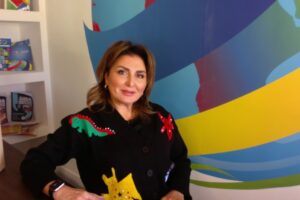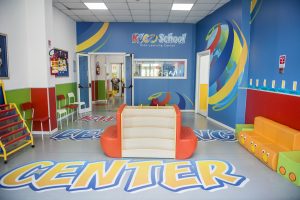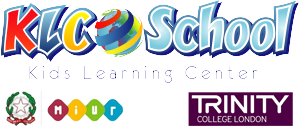About us
Welcome
BENVENUTI AL KIDS LEARNING CENTER!
 I am Perla Boccaccini, scientific and organizational director of this groundbreaking centre, designed for children and young people in training, their families and professionals who work in the world of education.
I am Perla Boccaccini, scientific and organizational director of this groundbreaking centre, designed for children and young people in training, their families and professionals who work in the world of education.
I am a psychotherapist, specialist in health psychology and expert in intervention strategies in the educational field, who for about twenty years has been designing, laying the foundation and directing innovational and competent education centres in promoting the well-being of modern families.
All the schools I started are described as Centres for family education and well-being, because today becoming a family, growing and educating people, means accepting a challenge, evolving and renewing, discovering, exploring oneself and improving oneself, it means embracing a life project!
I am here to guide you on this journey. I have been following parents and children on their growth pathway for many years, it has been a long journey, an extraordinary one during which I have had the opportunity to explore myself, my skills, my motivation and to stem a mission from it; I believe in my work, in its potential and possibilities, but above all I believe in children and we owe them a future!
The school, which covers an area of 2,000 square meters and is immersed in 4,000 square meters of outdoor playgrounds and equipped spaces, is located in the Appia Antica park and is made up of three school buildings. In the first building we welcome our early learners (from 2 to 5 years old), the second building is dedicated to the primary school children (from 6 to 10) and the third houses the middle school (from 11 to 13), a gym with changing rooms, a multifunctional outdoor field, a canteen, labs, offices for expert consultancies in the fields of education and parenting. Free parking is available.
 The School offers a multiculture education, focused on the development of the person and their socio-emotional skills. This international culture allows the student to look to the future with optimism and confidence (“Early childhood education and care” – EUROPEAN COMMISSION , 2014) becoming a citizen without mental, social and emotional barriers.
The School offers a multiculture education, focused on the development of the person and their socio-emotional skills. This international culture allows the student to look to the future with optimism and confidence (“Early childhood education and care” – EUROPEAN COMMISSION , 2014) becoming a citizen without mental, social and emotional barriers.
The School spaces are designed to support educational learning processes. Each space has been created with care,to focus on hospitality, offering a starting point to instill beauty and balance within the child. A “living and cultural environment” where the child is free to act and move according to its own internal motivations, a social and relational context, where parents can also meet, learn and grow together with their children.
The school is built to create open spaces and classes designed with large windows that promote a flexible learning enviroment.
The use of technologies in these spaces will allow us to go beyond the walls that divide the school environment from the home one.The classrooms are equipped with ergonomic chairs, multimedia workstations for researching and sharing the necessary materials, smart board, common areas for discussion, soft corners where you can relax, read and reflect. Spaces that promote cooperative learning and at the same time develop a personal dimension of knowledge and growth, where the basic skills (Life Skills) necessary for building well-being.
The program (P.O.F.), which uses a double “Italian – English” curriculum to offer a wide range of opportunities and greater freedom in building one’s own educational path, pursues objectives compliant with the Italian ministerial guidelines, enriched by indications from the Anglo-Saxon learning system and from many interdisciplinary projects with a strong international and scientific flavor, such as the S.T.E.A.M. methodology.(Science, Technology, Engineering, Art, Mathematics) and the Life Skills (“Life Skills education in schools” – W.H.O. 1993).
The PSYCHO-EDUCATIONAL METHODOLOGY, conceived by Dr. Perla Boccaccini (Through children’s skills – Ed. Bookness 2023), Headmaster of the KLC School, is used at an interdisciplinary level embracing the entire school. Its key elements are:
-HEALTH EDUCATION
-LIFE SKILLS DEVELOPMENT
– PROMOTING INDIPENDENCE
– FAMILY INVOLVEMENT
– PERSONALIZED CURRICULUM
Visit Our Centre
Address: Via Ardeatina, 342 – 00142 Roma
Phone number: +39 06 89533405
E-mail: segreteria@klcschool.it



